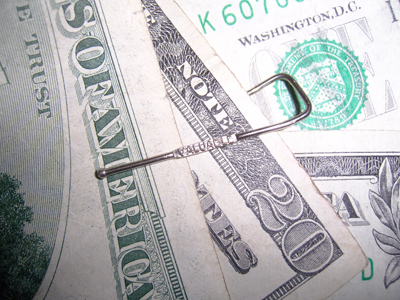All Nonfiction
- Bullying
- Books
- Academic
- Author Interviews
- Celebrity interviews
- College Articles
- College Essays
- Educator of the Year
- Heroes
- Interviews
- Memoir
- Personal Experience
- Sports
- Travel & Culture
All Opinions
- Bullying
- Current Events / Politics
- Discrimination
- Drugs / Alcohol / Smoking
- Entertainment / Celebrities
- Environment
- Love / Relationships
- Movies / Music / TV
- Pop Culture / Trends
- School / College
- Social Issues / Civics
- Spirituality / Religion
- Sports / Hobbies
All Hot Topics
- Bullying
- Community Service
- Environment
- Health
- Letters to the Editor
- Pride & Prejudice
- What Matters
- Back
Summer Guide
- Program Links
- Program Reviews
- Back
College Guide
- College Links
- College Reviews
- College Essays
- College Articles
- Back
The Trouble with Monopoly
For the second year in a row, Safeway - and its parent company, Albertsons - has begun its lucrative “monopoly game”. This game consists of collecting tickets and placing them on their corresponding spaces on a game board to win prizes. Although it may not seem like it, this game only narrowly skirts the United States’ anti-gambling laws. It also preys on the competitive natures of human beings and gives massive profits to Safeway in the process. For these reasons, the Safeway monopoly game - and other “sweepstakes” like it - need to be stopped.
One of the most major problems of the game is that it exploits loopholes in the loosely worded anti-gambling laws created by the U.S. government. According to these laws, any form of “sweepstakes” operated by a for-profit organization that requires a purchase for entry is considered gambling and is illegal in many states, including California. Safeway manages to get around this law by allowing the option of ordering game tickets through the U.S. postal service for no charge. However, it is nearly impossible to win anything using this method as it would be incredibly difficult as only a few tickets would be collected. The only way to have a realistic shot at winning even a five dollar gift card is to shop at Safeway. There, you can get a ticket every time you shop! In addition, if you buy certain products, you get even more tickets. However, these products are often more expensive than their competitors, as well as potentially lower quality. Anyone with reason wouldn’t fall for that, right?
You would think that a little logical thinking is all it takes to stop yourself from falling into a trap like the Safeway game, but the reason behind the urge to do everything to win is far deeper. Human beings are naturally competitive. This nature was passed down to us from a time when “winning” meant surviving and passing on your genes and “losing” meant dying and not passing on anything. Safeway - and other companies like it - exploit this ingrained trait by allowing the participants in their competitions to get just close enough to winning that they feel like they ‘have a shot’, but letting only very, very few people actually win. Safeway does this by having just one or two tickets per prize that are nearly impossible to get but making the rest of the tickets common enough that the average person can get quite close to winning many of the prizes. However, with the last few necessary tickets practically impossible to find, the participants’ efforts are likely wasted. This leads to them feeling dissatisfied with themselves for not being able to win, possibly motivating them to buy even more products from Safeway in a futile attempt to win anything. In this situation, Safeway is the only one who benefits at all.
Beyond that, Safeway benefits a lot from this ‘game’. Safeway’s parent company, Albertson’s, experienced a 1.6% sales gain in comparison to the previous year once the monopoly game was implemented. This is because the game literally makes people buy more Safeway products. In addition, the “50 cents off” coupons that come with some game tickets only add to Safeway’s profits. This practically negligible discount can convince customers to buy something they don’t actually want or need, just because they have a discount. This results in even more profits for Safeway, and even more harm to the customer.
This and other “sweepstakes” are decidedly a problem with a negative impact on the average consumer. However, the solution to it is relatively obvious, albeit nowhere near simple. In order to combat the negative effects of these games, the United States needs to update its laws regarding what constitutes “gambling” to included “sweepstakes” games such as these.

Similar Articles
JOIN THE DISCUSSION
This article has 0 comments.
